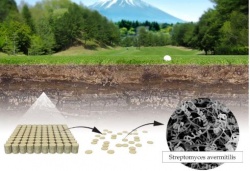Award
3 scientists win Nobel Prize in Medicine for parasite-fighting therapies
The Nobel Assembly at Karolinska Institutet has today decided to award the 2015 Nobel Prize in Medicine with one half jointly to William C. Campbell and Satoshi Ōmura for their discoveries concerning a novel therapy against infections caused by roundworm parasites and the other half to Youyou Tu for her discoveries concerning a novel therapy against Malaria.


Campbell, an Irishman, is a research fellow emeritus at Drew University in Madison, N.J., whereas Japanese scientist Satoshi Omur is a professor emeritus at Kitasato University. They were recognized for the discoveries leading to ivermectin, a semi-synthetic derivative of a drug from soil bacteria to kill roundworms that cause river blindness and, to a lesser extent, elephantiasis.
They will share the prize with YouYou Tu, who is chief professor at the China Academy of Traditional Chinese Medicine, for her work in significantly reducing the mortality rates of patients suffering from malaria. Tu isolated the anti-malarial drug artemisinin from a plant used in traditional Chinese medicine. She is the 12th woman to receive the Nobel Prize in the medicine category.
"These two discoveries have provided humankind with powerful new means to combat these debilitating diseases that affect hundreds of millions of people annually," the Nobel Assembly at Karolinska Institutet said in a prepared statement. "The consequences in terms of improved human health and reduced suffering are immeasurable."
The trio will share the $960,000 prize money with one half going to Campbell and Omura, and the other to Tu. Each winner will also receive a diploma and a gold medal at the award ceremony in December.
Key publications:
Burg et al., Antimicrobial Agents and Chemotherapy (1979) 15:361-367.
Egerton et al., Antimicrobial Agents and Chemotherapy (1979) 15:372-378.
Tu et al., Yao Xue Xue Bao (1981) 16, 366-370 (Chinese).
Source: The Nobel Assembly at Karolinska Institutet
05.10.2015









